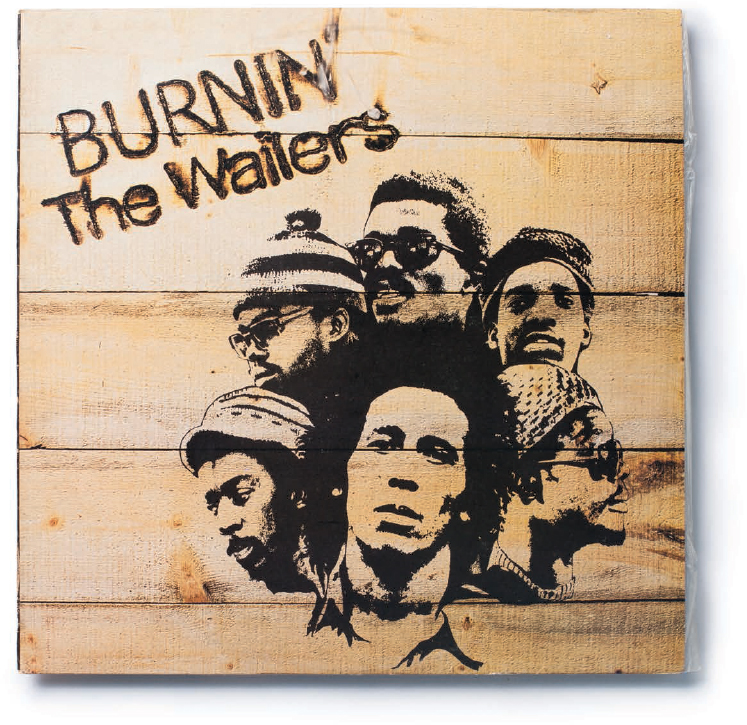
Tuff Gong/Island
Produced by Chris Blackwell and the Wailers
Released: October 1973
TRACKLISTING
01 Get Up Stand Up
02 Hallelujah Time
03 I Shot the Sheriff
04 Burnin’ and Lootin’
05 Put It On
06 Small Axe
07 Pass It On
08 Duppy Conqueror
09 One Foundation
10 Rasta Man Chant
Had it not been for two men, reggae music would never have left Jamaica. Chris Blackwell, the owner of Island Records, loved reggae but believed that this rebel music needed a leader and that man was Bob Marley. A young Jamaican whose early years in the US attuned him to soul music, Marley was a Rastafarian on a mission for social justice and the sanctity of marijuana.
The Wailers originally referred to the vocal trio of Marley, Peter Tosh and Bunny Livingston. They were joined by keyboardist Earl ‘Wire’ Lindo and the Barrett brothers: bassist Aston ‘Family Man’ and drummer Carlton, one of the greatest-ever rhythm sections. So much of reggae depends on the bass and Family Man wrote the manual. ‘The Wailers was the best vocal group and I group was the best little backing band at the time,’ Family Man recalled. ‘So we say, “Why don’t we just come together and smash the world?”’
The Wailers had recorded a collection of long jams ideal for the Jamaican market. Blackwell and Marley then edited the original tapes to shape these grooves into songs. The result was the Catch a Fire album and the word spread in the UK about a new sound. Burnin’ followed Catch a Fire and the titles tell the tale.

The album opens with a call to arms: ‘Get Up Stand Up’, co-written by Marley and Tosh. It’s followed by ‘Hallelujah Time’, and then the song that would make Marley a household name, ‘I Shot the Sheriff’. ‘That message is a kind of diplomatic statement,’ Marley said. ‘I shot the sheriff is like I shot wickedness. That’s not really a sheriff, it’s just the elements of wickedness. But the elements of that song is people been judging you and you can’t stand it no more and you explode, you just explode.’ When Eric Clapton covered the song the following year he had a global hit.
Be that as it may, the Wailers were calling for revolution by any means necessary. In ‘Burnin’ and Lootin’ they sing ‘How many rivers do we have to cross/Before we can talk to the boss?’, a slap in the face to Jimmy Cliff’s ‘Many Rivers to Cross’. Marley had that messianic quality and he knew it. ‘I was at Harry J’s,’ Island’s Richard Williams recalled. ‘I was prepared to find someone talented, because I knew the records, but it quickly became obvious that Bob simply was Marvin Gaye or Bob Dylan, or both.’
Burnin’ was also a nod to the past. ‘Duppy Conqueror’, ‘Small Axe’, ‘Put It On’ and ‘Pass It On’ are re-recordings of songs the Wailers had played around Jamaica for years. When not planning the overthrow of the ruling class, the Wailers grooved on ‘herb’, an irresistible combination of themes in the 1970s. It was a transitional period for the Wailers; Marley started to dominate the group and this was the last album to feature Tosh and Livingston. But there is a strength of purpose here that was the bedrock for reggae.
It was a whole new sound, as Robert Christgau wrote: ‘This is as perplexing as it is jubilant – sometimes gripping, sometimes slippery. It’s reggae, obviously, but it’s not mainstream reggae, certainly not rock or soul, maybe some kind of futuristic slow funk.’